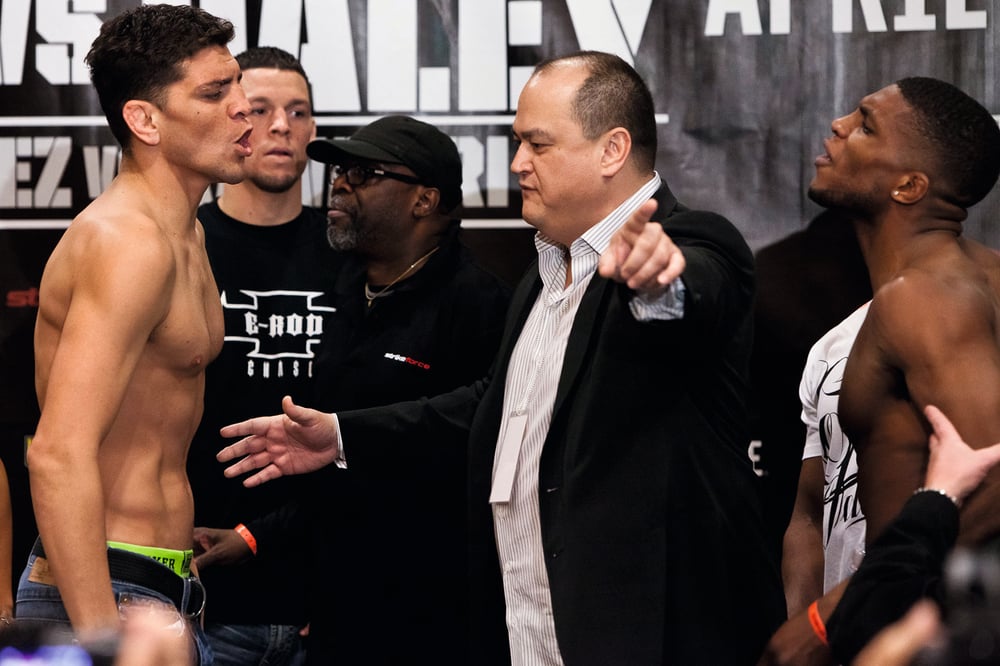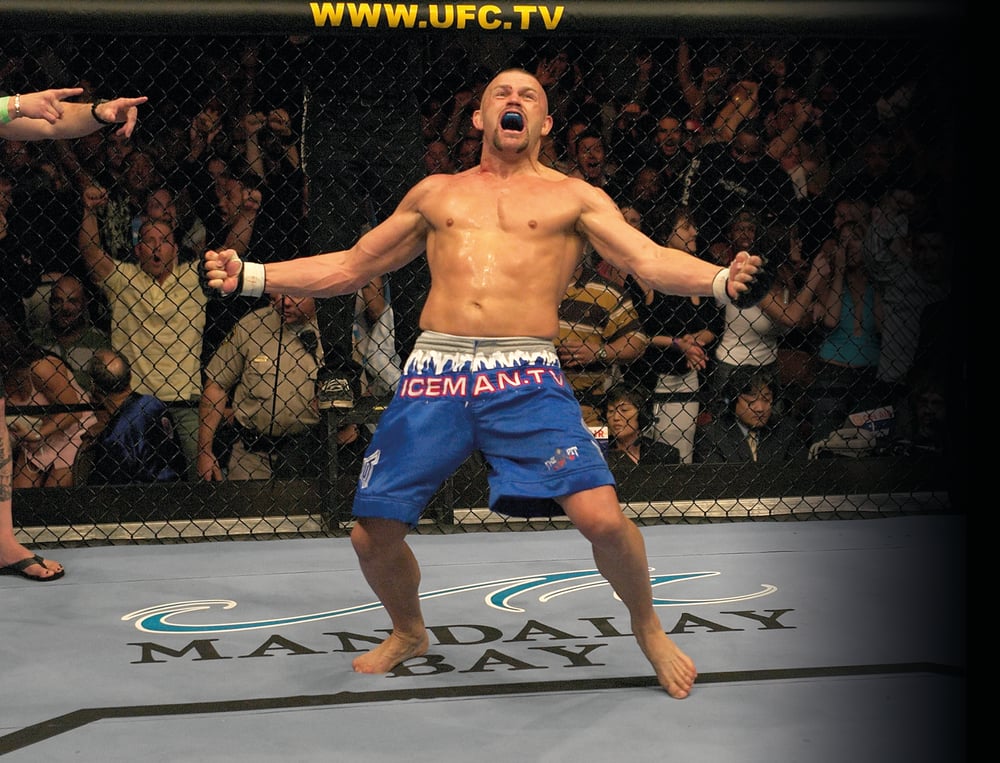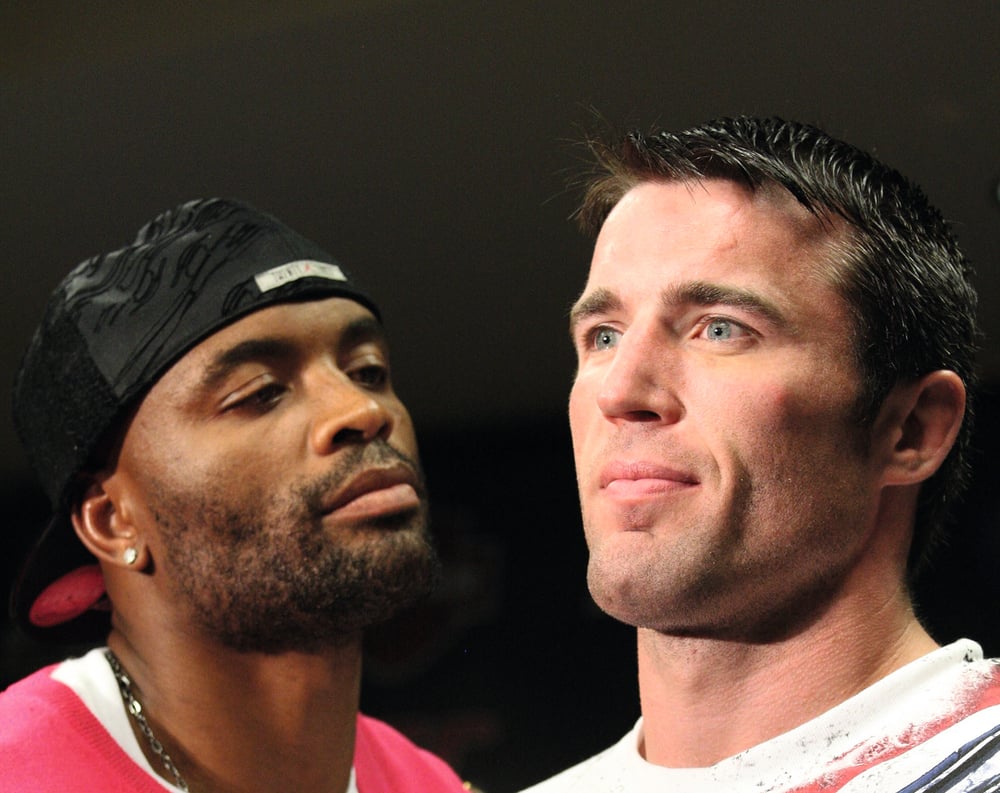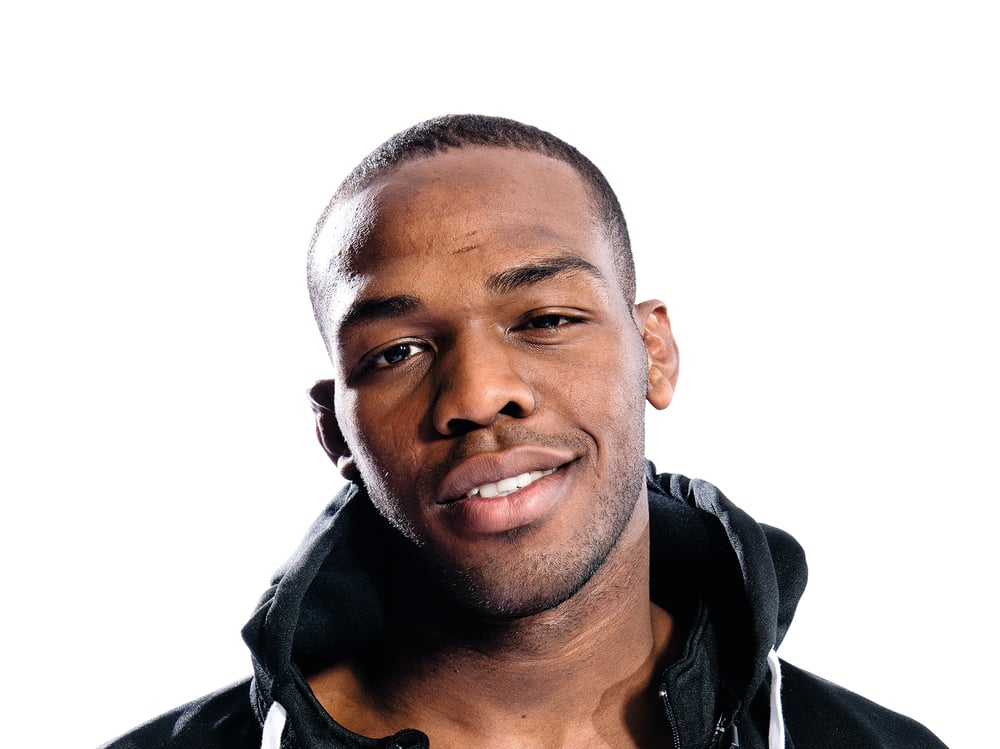
Issue 077
July 2011
Is there any point landing verbal volleys long before entering the Octagon?
When Ultimate Fighting Championship officials first announced the line-up for the February 2011 return to Australia for UFC 127: Penn vs Fitch, fight fans around the world were largely left scratching their heads. While the Sydney main event between future UFC Hall of Famer BJ Penn and perennial welterweight contender Jon Fitch was compelling enough, albeit a bit out of left field, it was the supporting cast that left some potential viewers truly concerned. After all, while British striker Michael Bisping has provided some memorable moments in his five-year UFC career, did a showdown between ‘The Count’ and gritty journeyman slugger Jorge Rivera really deserve co-feature status?
And yet, a funny thing happened in the two-month period between the day tickets went on sale for UFC 127 and February 26th, when 18,186 screaming fans packed the Acer Arena; Bisping vs Rivera became the talk of the town.
It began innocently enough. Rivera and his primary sponsor, Ranger Up, partnered together for a few short YouTube videos that took aim at Bisping’s accent, his heritage, his demeanor, and pretty much every other minor unique trait ‘El Conquistador’ and his camp could think of to target. It was Trash Talking 101, and it worked. Bisping took the bait, fired back with his own videos on Bisping.tv, and used each and every subsequent media appearance before the fight to let the world know Rivera would pay for his indiscretions. In short, through carefully orchestrated (though seemingly genuine) self-promotion by the contestants involved, the fight nobody cared to see quickly became the fight no one dared to miss.

But why? In a sport that sees men around the globe engaged in hand-to-hand combat on a regular basis, why does a little bad blood add excitement to the proceedings? Humans crave entertainment. The UFC and other fight promoters are tuned into the fundamental primal impulse of what the MMA fan really wants to see: bad blood spilt. Ultimately, and I’ll hedge my bets on this, those promoters actively encourage rivalry. Why? It sells far more pay-per-views than a simple professional competition.
From a psychological perspective, many fans who long for grudge matches and urge the venom fired between fighters are actually engaging in a process psychologists call ‘catharsis,’ which is a self-defense mechanism of channeling aggression and releasing it by watching someone else be aggressive. And let’s face it, when fighters talk trash you can almost be guaranteed it’s going to be an aggressive bout! Catharsis is based on a Freudian theory that we all have a self-destructive instinct, i.e. aggressive urges build up within us and have to be released to prevent a sudden explosion of aggression.”
From a purely financial perspective, The theories on the motivations of promoters certainly ring true. As demonstrated by Bisping vs Rivera (not to mention noted current trash talkers such as Chael Sonnen, Josh Koscheck, Dan Hardy, Tito Ortiz and the like), promoters reap the monetary benefits of a good rivalry. But UFC president Dana White, the man who calls the shots for the world’s largest MMA organization, insists he’s never instructed his fighters on how to act or what to say. The rivalries, he believes, simply evolve over time and circumstance.
History seems to prove his point. UFC, Pride and Strikeforce veteran Frank Trigg, a man whose trash talking skills were always at least on par with his in-cage capabilities, notes that rivalries and braggadocio existed long before there were any significant moneymaking opportunities in the idea of pitting various systems of traditional martial arts against each other. “Back in the day, when the UFC first started, the whole purpose of this sport was to prove jiu-jitsu was better than anything else,” Trigg acknowledges. “My jiu-jitsu is better than your karate, your kung fu, your wrestling and your boxing.’ A lot of times, back in the ‘70s and early ‘80s, you would go to someone’s dojo and challenge them. ‘Look, dude, you say you’re the best? Well I’m the best. I’m here at your dojo to challenge you.’ That’s what you would do. You would show up at the dojo and prove it.”

You’d be hard-pressed to find anyone who retired wealthy following Brazil’s famed mid-20th century luta livre vs Brazilian jiu-jitsu clashes, but that didn’t stop the competitors of the day from fiercely fighting and constantly looking to irk their rivals with harshly worded verbal barbs. So, if it’s not pure self-promotion, why worry about any pre-fight banter? After all, if the differences will soon be settled in the cage why concern yourself at all with coming out on top in the preceding hype? Trigg said the answer is simple: from the early days of inter-dojo matchups to the current spotlight of packed arenas around the globe, well-designed pre-fight trash talk can give you a leg up on your foe once the actual bout begins.
“The main purpose of trash talking before the fight is to try and throw your opponent off their game and force them to fight from a space of emotion,” Trigg says. “If I can get someone to fight from emotion I can then drag him into deep water and watch him fall apart. The guys fighting from emotion tend to not conserve energy. They have a higher respiratory rate, a higher pulse rate. They just don’t have the ability to maintain a long, drawn-out fight and pace themselves for the entire fight.
“You can also get guys to do stupid stuff. When guys fight from emotion, they’re very reactive. If I punch them in the face, they want to punch you in the face. If you kick them in the leg, they want to kick you in the leg. They become very reactive, whereas a guy who’s not fighting from emotion – a guy who is fighting from his training camp – you may punch him in the face, but in training camp they taught him if he gets punched in the face to shoot. If I can get a guy to fight from emotion, he’s going to punch me back, which means I can move out of the way. I can punch and move away and score points with the judges. He hasn’t scored anything because he keeps missing.
“A guy who is tactical and shoots, yeah I hit him in the face with a jab, but he took me down, so he’s winning at that point. Guys that fight from emotion don’t think straight. They become very reactive and animalistic in their mind-set, and it makes it easy for me to win, at least from a judge’s standpoint, even if I can’t finish the fight.”
While the sport’s very best fighters (witness the demeanors of UFC champions Cain Velasquez, Jon Jones, Georges St Pierre, Frankie Edgar and Jose Aldo) don’t generally rely on pre-fight psychological attacks, those competitors who may find themselves just a rung or two below the top can use a well-crafted verbal assault to gain an edge after the opening bell.
What is interesting is that the usual suspects who are using their tongues as weapons, generally they’re good fighters – but they’re not the best. It is a strategic move among fighters who indulge in trash talking and it is designed to do one thing: to get under the skin of your opponent. If they hit their target successfully, it is likely to cloud their opponent’s focus and flood the body full of stress hormones, e.g. cortisol. This is equivalent of a fighter getting the plague before he steps into the Octagon.
“With the a long build-up before he goes toe-to-toe, higher and more prolonged levels of cortisol are likely to be present in his bloodstream. These levels have been shown to have negative effects on impaired cognitive functions – basically ‘brain fog,’ which affects a fighter’s clarity of thought and can drain vital energy stores.”
There is real physiological proof that the psychology of trash talk involves walking an extremely fine line. Proper self-motivation can provide an emotional and adrenal edge, but an over-investment in verbal warfare can lead to an ill-timed unraveling.
There are good but inexperienced mixed martial artists out there who believe they’ll fight better if they have a genuine frenzied rivalry and are fueled with rage. But we’re not in the ‘90s anymore and research has shown over and over again that fighters perform better when they’re calm and focused – not enraged. Maybe a fighter just wants a ‘real’ fight? It seems that heated rivalries and creative trash talkers appear to have a longer shelf life than most, probably because they draw bigger crowds.
“But anger is a negative emotion where large amounts of adrenaline are released into the system, allowing a fighter to fight full-throttle but only in short bursts. The problem with adrenaline dumps is a fighter’s gas tank is limited and, when they enter an aggressive emotional state, the brain can only process one idea at a time and their ability to discipline their thoughts and physical impulses goes out of the cage. The mind is often guided by our emotions, which cause excess muscle tension, leading to neutralized reflexes, sluggish reaction times and vital energy stores being consumed, which can lead to up to a 60% drop in performance.”
In short, the risk-reward nature of trash talking makes it a true double-edged sword. Those fighters who don’t normally make verbal warfare a part of their routine approach to fighting must be mindful of being drawn into a trash talking exchange – and out of their traditional game.
Trash talking is as much as part of the evolution of the sport as are Jon ‘Bones’ Jones’ spinning elbows. Fighters often have brittle egos, and when an opponent publicly takes a cheap shot, you must be mindful of their motives. They’re hoping to lure your ego out into the open and pummel it! Strong-minded and grounded fighters rarely take the bait.
IT'S ALL ABOUT CONTROL
The mastery in the art of trash talking is somehow akin to man’s ‘control’ of fire. Allowed to burn freely, one’s emotional investment in a fight can prove disastrous. Expertly managed, it can lead to an advantage in a fight and, as we’ve seen recently, advances in a career.
“Look at Chael Sonnen,” Trigg highlights. “He was a middle-of-the-road guy that talked his way into a title fight. But also, too, we’re still talking about him because he beat up Anderson Silva. He basically stopped Superman. He showed the world how to stop Superman. This is what you have to do to beat him up: show up in great shape, take him down and ground ‘n’ pound him – just don’t get caught in a triangle. If Sonnen didn’t get caught he’d be the hero because he talked his way into a title fight and then destroyed the champ. Instead, Anderson showed how tough he really is and then Chael goes on to have federal charges against him and reportedly tests positive for testosterone.
“Sonnen’s career has been on hold since, but there’s always going to be space for a guy who talks trash. They can go from being ranked number 10 and perhaps fifth in line for a title shot to talking their way into contention. The number-one contender gets hurt, and what the hell, let’s call the guy talking the most junk and put him in there even though number four to number eight are all waiting for their shot. We’ll bypass them. There’s always space for a guy who can talk trash, if he can back it up.”

MMA is no longer about dojo storming and closed-room challenge matches. It’s a billion-dollar industry with global reach, and wars of words are now fought out in the media rather than face-to-face. Fights are made every day and, from pay-per-view main events to Spike TV headliners and preliminary-card dark matches, each match-up has some varying degree of importance on the MMA landscape. But left in the right hands – and mouths – that position can always be improved.
“The MMA machine has taken over,” Trigg says. “You don’t have to talk crap like you used to. Guys that still do, like Michael Bisping and Jorge Rivera, really stand out. It was really an under-sung fight going into that card because it was more about BJ Penn and Jon Fitch. But then, all of a sudden, that changed.”
The smartest of today’s fighters – the next-generation athletes who trained in multiple disciplines from childhood and who embrace fighting as part entertainment, part sport, and 100% art – realize that the mental side of the sport, from game planning to mental manipulation of an opponent, is just as important as the countless hours spent grinding away in the gym.
“Next to being on the frontline of a war and being shot at, MMA is now considered to be one of the most stressful activities a human can engage in. “The reality is fighters higher up the food chain realize the consequences of a neglected mental game. When they enter the eight-sided barricade, it becomes 90% mental and just 10% physical because all of the blood, sweat and tears sacrificed to prime their arsenal rely on one thing: the mind.”
TRASH TALKERS
“He s***s the bed every time he’s in a main event. He’s had three number one contender fights and a title shot and lost them all. Nate Marquardt doesn’t excite me.” Michael Bisping
...










